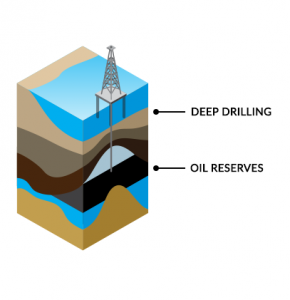All Categories
Featured
Table of Contents
Geophysical Survey Definition in Queens Park Oz 2022
This work is significantly contracted out, so consultancies provide another source of employment. Consultancy firms vary in size, from very little companies to large multinationals. Some consultancies are quite specialised in utilizing particular geophysical strategies or operating in specific places, while others offer a more varied variety of services to their consumers.
The extraction of gas from garbage dump sites is another area of work and this might grow in the future. Expedition business may undertake work for building and construction companies, water business, mining companies and ecological firms, so geophysicists may be utilized in any of these settings. Other companies include: geological surveysgovernment bodies and agenciesuniversities and research institutes.


Vacancies may be noted in the oil and gas sector press. Recruitment is impacted by oil cost variations and the level of competition for positions varies depending upon this. Careers Days, which cover the complete variety of geoscience careers and are usually participated in by a variety of crucial industry employers, are run by The Geological Society.
What Can I Do With A Major In Geophysics? in Bibra Lake Western Australia 2020
A few of the large oil and gas companies provide a complete two-year structured training programme throughout the breadth of geophysics, consisting of the opportunity to experience work in various teams prior to specialising in one location. Your training might include deal with: existing wellsmagnetic and gravitational possible field data analysisresearchrock analysis. It's more normal for your preliminary training to be provided on the job.

There might be a probationary duration during which you work along with a skilled coworker. Competency-based appraisals happen frequently in most companies. In smaller sized firms, and for academic posts, there is not likely to be any formal training - you'll be expected to begin work straightaway and choose up abilities as you go along.
If you work for a smaller business, you might find that you need to take responsibility for setting up and moneying your own development and training. If you have a geology degree, membership of The Geological Society can be beneficial for networking and for maintaining to date with the market.
Airborne Geophysical Survey in Scarborough Western Australia 2023
You might likewise find it helpful to sign up with the PESGB (The Petroleum Expedition Society of Great Britain, which has a geophysics special interest group. After a probationary period, and as soon as you have actually gained some experience, you might progress to senior geophysicist, then team leader and after that into a senior function in management.
The ease of motion between functions depends on the business structure. Study at Masters or Ph, D level in a subject related to geophysics or geosciences may aid with your career advancement and development. The work market within the oil and gas industry is very dependent on rate and this may affect your chances for profession progression.
For skilled geophysicists, freelance consultancy provides a great route for profession advancement. As a geophysicist, you're likely to have several jobs throughout your working life.
5 Surface Geophysics in Cottesloe Australia 2023
From geophysics, it's possible to focus on seismology (completing additional training to become a seismic interpreter) or to move into related locations such as engineering geology or danger prediction.
Choosing what to study in college is a hard choice. Even if you know that your field of interest depends on science, what program of research study is best for you? If you make the decision to significant in physical and life sciences and pursue a profession as a geophysicist, you're getting ready for an amazing and profitable occupation.
The first step to accomplishing your goal of ending up being a geophysicist is earning a degree. Even for entry-level positions in the field of geoscience, you'll require a bachelor's degree (a geophysicist college degree) from a certified college or university. Geophysicists must be able to: examine rocks, photographs, and other pieces of information carry out research both in the field and in labs create maps and charts of their findings write reports To accomplish all this, trainees require a specialized education for geophysicist careers.
As specified above, you'll require a bachelor's degree in geoscience or a related discipline, such as a physical science or a life sciences, to land an entry-level job. Trainees can likewise prepare by majoring in topics like: Biology Chemistry Computer science Engineering Mathematics Physics The above geophysicist majors use a more generalized method to a single clinical discipline, but a lot of programs require students to take one or more geology course.
Latest Posts
What Geophysicists Do in Iluka WA 2023
Geophysical Survey Definition in Casaurina Oz 2021
Geology And Geophysics - Careers And Employment in Manning Aus 2022